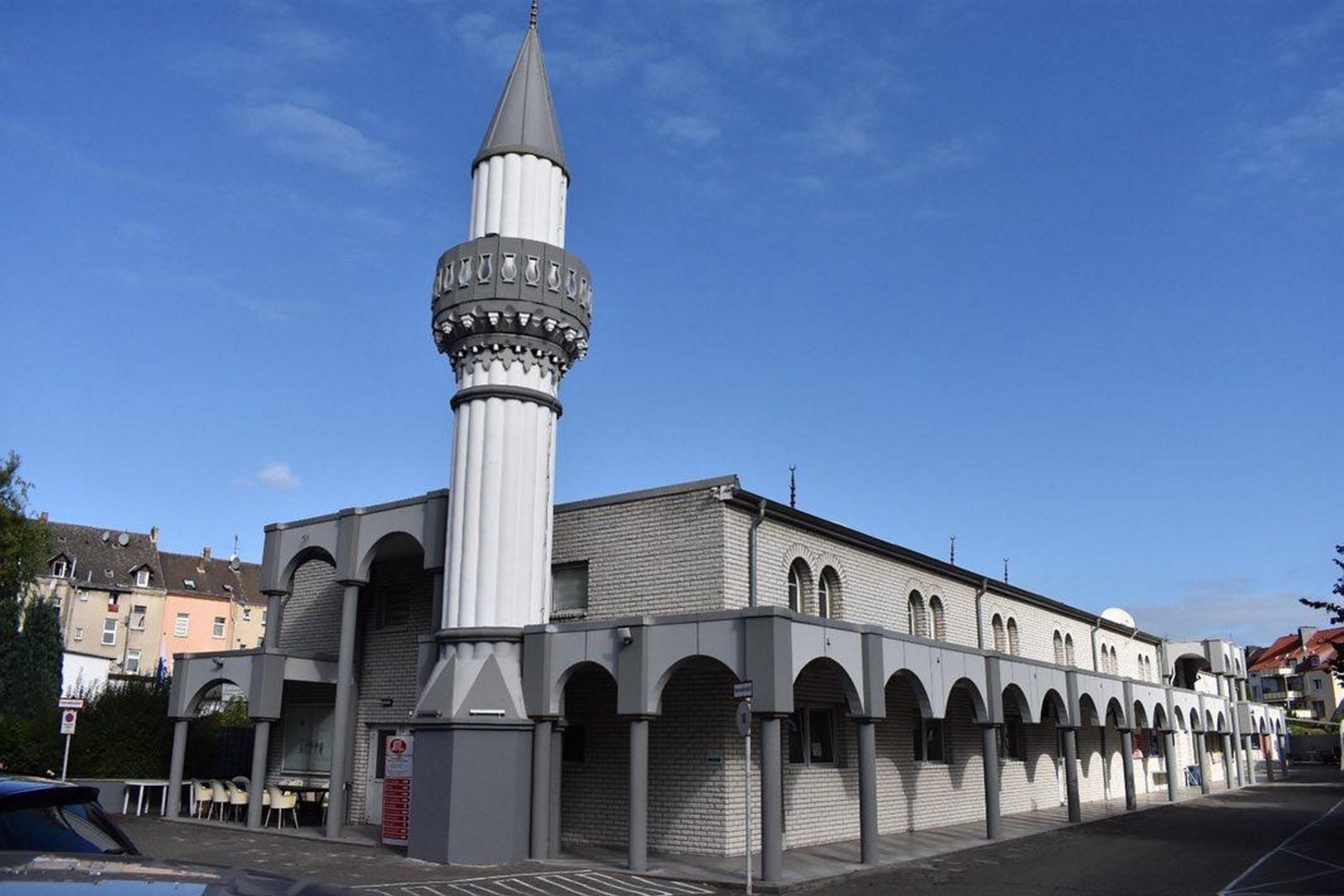European Observatory to Combat Radicalization – EOCR
International scholars and scientists recommit to combating Islamophobia
eureporter – Islamophobia is surging throughout Europe and has intensified due to the ongoing conflict in the Middle East, writes Martin Banks. An additional intensified wave of Islamophobic disinformation – or the deliberate spread of false information – comes amid a rising tide of Islamophobia across Europe.
Official data show that Islamophobic crimes in Germany more than doubled in 2023, with nearly one in 10 incidents involving violence, according to the German Alliance against Islamophobia and discrimination against Muslims (CLAIM).
Austria and other EU countries have also reported similar trends while racism and intolerance are rising in France, fuelled by the war in Gaza and far-right ideas in public debate, according to France’s human rights commission, the CNCDH. It says reports of antisemitic and anti-Muslim acts have increased by 284% and 29% respectively, while other types of racist acts increased by 21%.
Anti-Muslim hate in the UK has more than tripled in the four months since Hamas’s attacks, says the charity Tell Mama which documented 2,010 Islamophobic incidents between 7 October and 7 February – a steep rise from the 600 it recorded for the same period the year previously.
It is the largest number over four months since the charity began in 2011. Generally, anti-Muslim and anti-semitic attacks have surged in the UK following the Israel-Gaza conflict while in the U.S the Council on American-Islamic Relations (CAIR), the nation’s largest Muslim civil rights and advocacy organisation, received a staggering 3,578 complaints about discrimination based on race, ethnicity, or religion in the last three months of 2023.
The Organization for Security and Co-operation in Europe is also concerned, saying that, “amidst an increase in prejudice and violence against Muslims in a growing number of countries, greater efforts are needed to build dialogue and counter anti-Muslim hatred.”
It hails the fact that all 57 OSCE states,including Uzbekistan, “have committed to fighting prejudice, intolerance and discrimination against Muslims and members of other religions.But it also called on all participating states “to intensify commitments and actions towards this crucial endeavour, striving to nurture an environment where every person can live free from hate and discrimination.”
The OSCE said, “There has been an upsurge in hatred against Muslims especially since the renewed outbreak of hostilities in the Middle East in October last year, with online and offline hate speech, threats and violence having a negative impact on Muslim communities, particularly women and girls.
The organization says all OSCE participating States have committed to combating discrimination and hate crime, adding: “Supporting countries across the OSCE region in combating anti-Muslim hate crime is a key area of our work, but victims across the OSCE area are reluctant to report their experiences to the authorities.”
This worrying trend is not confined to Europe or the U.S and was one of the issues of discussion by international scientists and scholars who got together recently in Uzbekistan to find ways to combat the problem.
Participants from 35 countries were attending the eighth annual Congress of the World Society for the Study, Preservation and Popularization of the Cultural Legacy of Uzbekistan (WOSCU) in Uzbekistan, with representatives of the International Organization of Turkic Culture, Muslim World Islamic League, the Al-Furqan Foundation, the International Turkic Academy, the Arab World Institute and others.
The event heard that there is a growing global concern related to islamophobia and how the international community, both in the West and beyond, should deal with it. The conference focused on efforts by Uzbekistan – a Muslim country- to address the issue.
The event heard that the Uzbek focus is on education and “enlightenment”, an approach and policy which the country’s president outlined during his landmark speech in the 78th session of the General Assembly of the United Nations in September last year in which he reaffirmed his commitment to freedom of speech.
He also spoke of the “need to strengthen our joint efforts in preventing the spread of the scourge of extremism.” A declaration was issued at the end of the annual WOSCU congress by the 300 participants from 35 countries, including 15 academicians, 40 professors, 103 doctors of science, 54 directors of museums and libraries and others.
It said: “We are firmly convinced that the work on studying and preserving cultural legacy is of paramount importance for the sustainable development and prosperity of not only Uzbekistan, but also the entire world community.”
A resolution supporting Uzbekistan President Shavkat Mirziyoyev’s call for “enlightenment against ignorance” and for an end to Islamophobia was adopted. Those attending agreed that education on Islam should be the main objective and agreed that improved understanding is vital for addressing the “irrational fear or hostility towards the religion of Islam and Muslims in general.”
In a letter to President Mirziyoyev, conference participants noted his broad support for the idea of a “humane Islam” that he expressed in his UN address and his emphasis on the importance of “spiritual enrichment”.The letter said the congress “fully” supported his initiatives, including in large-scale projects to “preserve the cultural legacy of Uzbekistan for world civilization.”
The congress, held both in Uzbekistan’s capital Tashkent and ancient Samarkand, approved some 150 projects, including a forthcoming heritage project, developed around the world by the World Scientific Society on Preservation and Popularisation of the Uzbek Heritage (WOSCU).
The projects, it was said, seek to foster recognition of “the great contribution of Oriental scholars who have made a significant contribution to world civilization.” Participants went on to praise Uzbekistan’s investment in Tashkent’s Centre of Islamic Civilization and the Imam al Bukhari Spiritual Centre near Samarkand, both currently under construction, saying, “We consider it our most important task not only to join the activities of the Centre of Islamic Civilization, but also to create a powerful and rapidly developing scientific and cultural platform that will become a bright beacon of enlightenment and knowledge in the East.”
The declaration, adopted at the congress’s plenary session, recognizes the “importance” of the Centre, a “cultural and humanistic mega-project which will give a powerful impetus to fundamental research dedicated to the worthy contribution of great scholars and thinkers of the East to the development of world science and civilization.”
However, the declaration cautioned, “We are concerned about the situation in the world and believe that the ideas of the Uzbekistan president on the truly humanistic and educational essence of the religion of Islam are worthy of the closest attention.”
Established in 2017, the Tashkent-based WOSCU, sponsored by leading Uzbek businessman Bakhtiyor Fazilov, works to highlight the country’s cultural heritage around the world.
A conference in Baku, Azerbaijan in March heard similar concerns to those voiced at the WOSCU event, with Ilham Aliyev, the Azer president, saying, “Regrettably, Islamophobia trends across the world are on the rise.
“We are witnessing the portrayal of Islam as a potential threat, with doubt, discrimination and open hatred against the Muslims becoming increasingly widespread with each passing day.”
He said that Azerbaijan’s determination to combat Islamophobia was “one of the challenges of the modern era” and called for “concerted efforts” to combat Islamophobia and to “generate fresh initiatives aimed at promoting the culture of tolerance and peace found d on respect for religious and faith diversity”.




